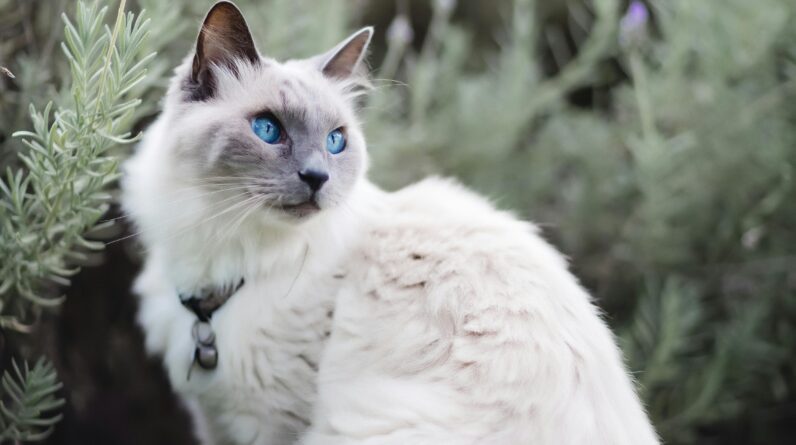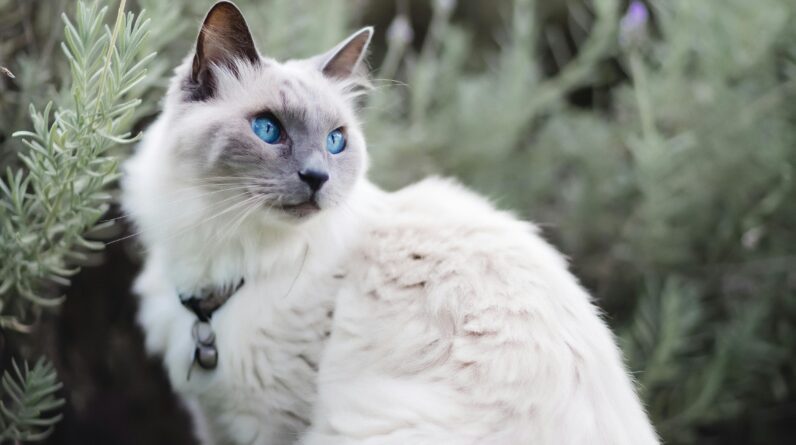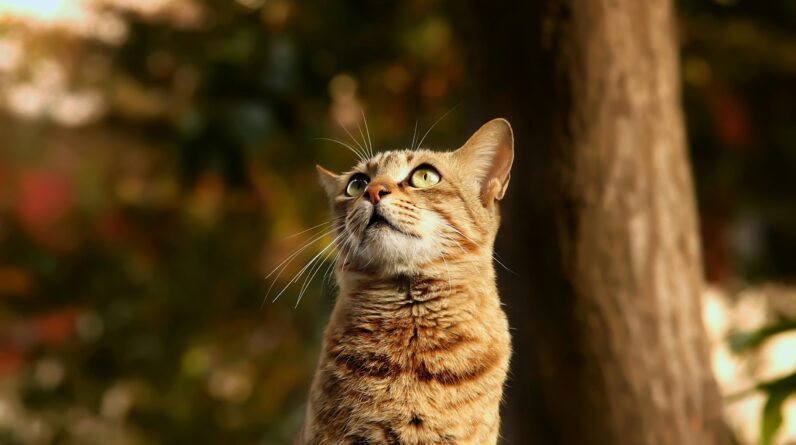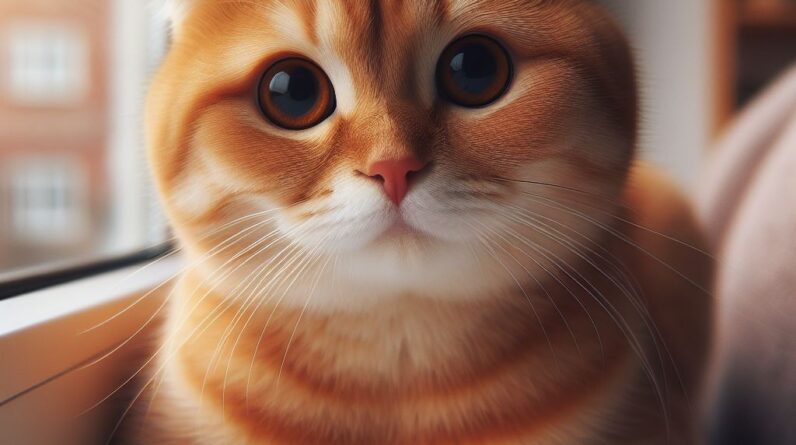
Best Ginger Cat Breeds for Families: A Comprehensive Guide
Welcoming a new pet into your home is an exciting decision, especially for families.
If you’re considering ginger cat breeds, you’re looking at some of the most affectionate and family-friendly pets.
This guide delves into what makes ginger cats a fantastic choice for households with children, offering insights for both those new to the idea and those almost ready to bring a furry friend home.
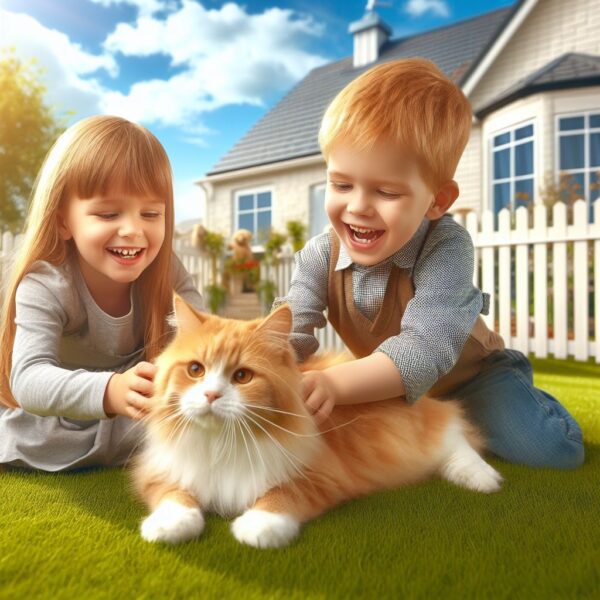

Why Ginger Cats?
Ginger cats, known for their striking orange coats, are more than just their good looks.
These breeds, including the famous American Shorthair and the exotic Abyssinian, are renowned for their sociable and playful nature.
Their temperament makes them ideal for active families, as they often enjoy playtime and cuddles in equal measure.
Ginger cat breeds often stand out in family settings when compared to other cat breeds, and here’s why.
Temperament
Many ginger cat breeds, like the American Shorthair and Maine Coon, are known for their friendly and easygoing nature.
This makes them particularly suitable for a family environment, as they often blend well with the dynamic of a household, including children and other pets.
Adaptability
Ginger cats generally adapt well to different living situations, whether it’s a bustling family home or a quieter setting.
They can handle the noise and activity of a busy household, which can be a challenge for some more sensitive or solitary cat breeds.
Playfulness
These cats often have a playful and curious nature, making them entertaining companions for children.
They enjoy interactive play, which can help kids learn about pet care and empathy.
Affection Level
Ginger cats are often very affectionate and enjoy cuddling and being part of family activities.
This level of affection can be higher than some other breeds that are more independent or reserved.
Maintenance
When it comes to grooming and care, ginger cats can vary.
Some, like the short-haired American Shorthair, have minimal grooming needs, making them easier to care for, especially in a busy family setting.
Others, like the long-haired Maine Coon, require more grooming.
Health
Generally robust in health, ginger cats can be a less worrisome choice for families, as they tend to have fewer breed-specific health issues compared to some other specialized breeds.
Size
Breeds like the Maine Coon can be quite large, which can be appealing for families looking for a more substantial pet.
Their size and sturdiness make them less fragile, which is an advantage in a household with children.
Ginger cat breeds often bring a mix of friendly temperament, adaptability, playfulness, and affection that can be particularly well-suited to family life, compared to some other cat breeds that might
require a quieter environment, have higher grooming needs, or be less interactive.
Top Ginger Cat Breeds for Families
American Shorthair
Known for its robust health and friendly demeanor, the American Shorthair is a perfect family pet.
They’re adaptable, good with children, and relatively low-maintenance.
The American Shorthair has a strong, muscular build and is a descendant of European cats brought to North America by early settlers.
Characteristics: Strong build, low-maintenance, and adaptable.
Temperament: Friendly, independent, and enjoys both playtime and relaxation.
Care Needs: Requires minimal grooming; a balanced diet and regular vet check-ups are essential.
Compatibility with Children: Excellent due to their patient and tolerant nature.
Other Aspects: Suitable for various types of households, including apartments.
Pros: Adaptable to various environments, low-maintenance, good with children.
Cons: Can be independent, may require time to warm up to new people.
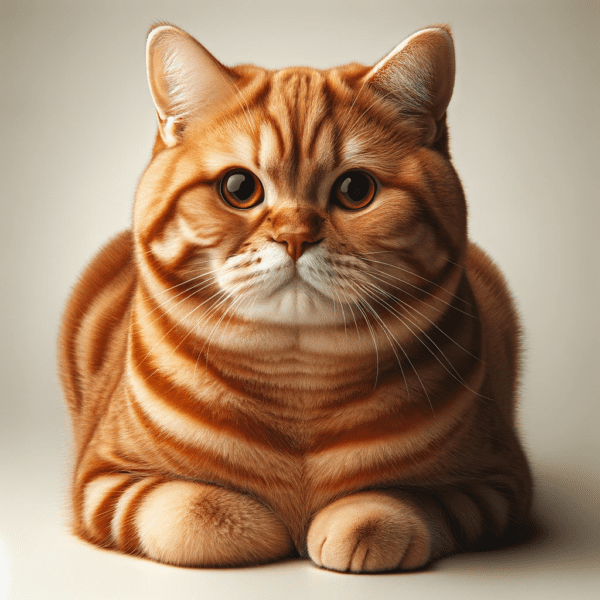

Abyssinian
The Abyssinian is playful and curious, great for families who enjoy interactive play.
They’re affectionate and bond well with family members.
The Abyssinian is known for its striking appearance and playful nature.
This breed is one of the oldest known cat breeds and is characterized by a slender build and a ticked coat.
Characteristics: Sleek build, highly active, and intelligent.
Temperament: Extremely playful and curious, enjoys interactive activities.
Care Needs: Regular grooming and ample playtime are necessary.
Compatibility with Children: Better suited for families with older children who can engage in active play.
Other Aspects: Thrives in an environment where they can explore and play.
Pros: Highly interactive, playful, bonds well with family members.
Cons: Requires ample playtime and attention, not ideal for very busy families.
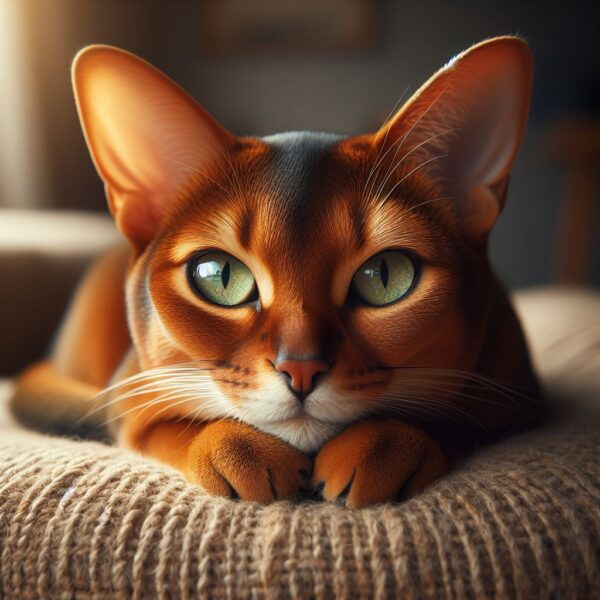

British Shorthair
With a calm and easygoing temperament, the British Shorthair is excellent for families.
They’re gentle with children and enjoy being part of the family without being overly demanding.
The British Shorthair is known for its dense coat and chunky build.
This breed has a calm and dignified temperament, making it a popular choice among cat enthusiasts.
Characteristics: Plush coat, calm and collected demeanor, strong and round build.
Temperament: Easygoing, affectionate, and enjoys a relaxed lifestyle.
Care Needs: Occasional grooming and regular health check-ups.
Compatibility with Children: Very good, as they are gentle and tolerate children well.
Other Aspects: Prefers a stable and quiet home environment.
Pros: Gentle with children, low-energy requirements, calm disposition.
Cons: Can be aloof with strangers, prefers a stable and quiet environment.


Maine Coon
The Maine Coon is one of the largest domesticated cat breeds, known for its sociable nature and impressive size.
They have a luxurious ginger coat, tufted ears, and a bushy tail.
Characteristics: Friendly, intelligent, and playful.
Temperament: Affectionate and gentle, Maine Coons are known for their dog-like behavior.
Care Needs: Requires regular grooming due to their long fur.
Compatibility with Children: Excellent. Their patient and gentle nature makes them great playmates for children.
Other Aspects: They are adaptable to various living conditions and enjoy being part of family activities.
Pros: Great with families, interactive, affectionate.
Cons: Can be prone to certain genetic health issues; needs space to roam.
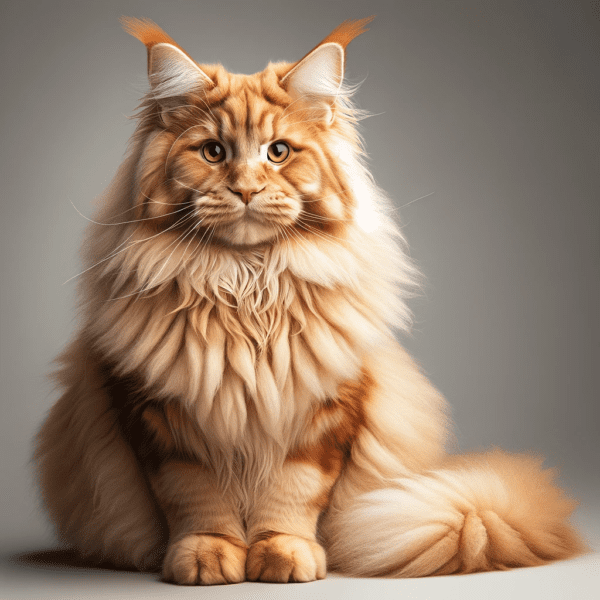

Munchkin
The Munchkin is a unique breed known for its short legs, caused by a genetic mutation.
Despite their small stature, they are energetic and playful.
Characteristics: Small size, energetic, and outgoing.
Temperament: Curious and playful, Munchkins have a kitten-like demeanor throughout their life.
Care Needs: Minimal grooming is required; regular playtime and exercise are essential.
Compatibility with Children: Good, especially since their playful nature aligns well with active kids.
Other Aspects: They adapt well to indoor living and are good for apartments.
Pros: Engaging personality, good for small living spaces, low grooming needs.
Cons: Their short legs may limit their ability to jump; some health concerns related to their unique build.
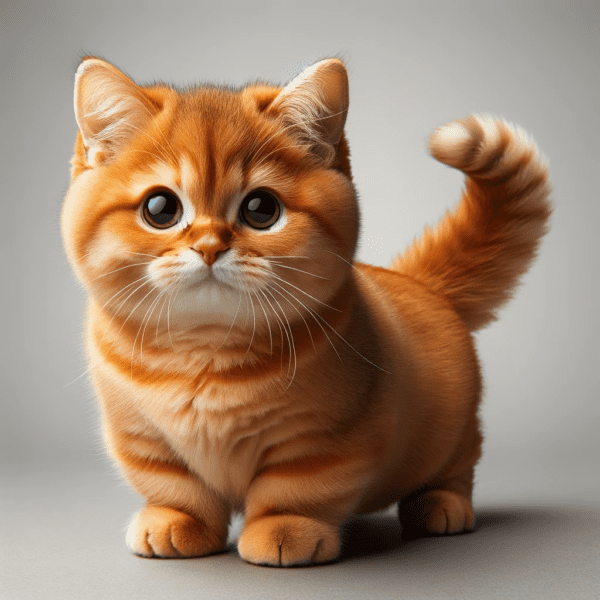

Caring for a Ginger Cat
Ginger cats, with their vibrant coats, are usually robust and healthy.
Yet, they need regular care to stay in top shape.
Consistent visits to the vet are crucial.
These check-ups help catch any health issues early.
A balanced diet is key too.
It keeps their coat shiny and their body fit.
Playtime can’t be overlooked.
It’s not just fun – it’s vital for their physical and mental well-being.
Grooming is another important aspect.
Some ginger cats need more grooming than others.
Breeds with longer fur, like the Maine Coon, need frequent brushing.
This prevents matting and keeps their fur looking great.
Remember, each cat is unique.
Their care will vary based on their specific needs.
By understanding and meeting these needs, you ensure your ginger cat leads a happy, healthy life.
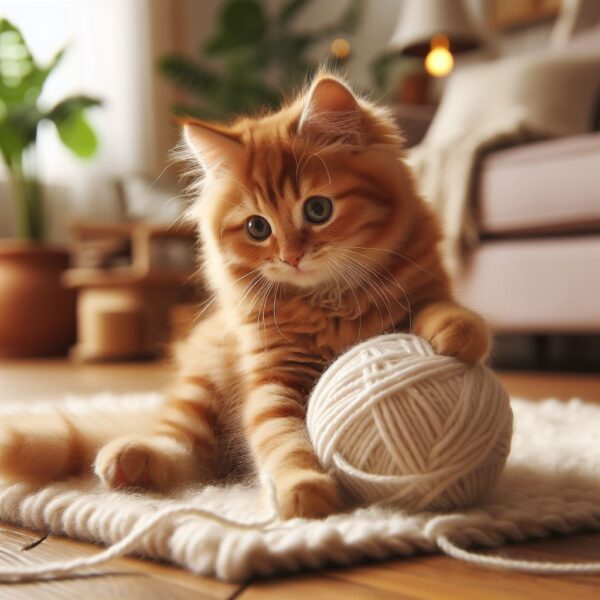

Real-Life Stories
Hearing stories from families with ginger cats is eye-opening.
Many families share that these cats fit perfectly into their busy lives.
They adapt quickly, even in lively homes.
This adaptability brings a lot of happiness and love to the household.
Families often talk about their ginger cats’ playful behavior.
These cats love to play and are quite entertaining.
Their antics can lighten up any day.
Plus, their affectionate nature is heartwarming.
They’re not just pets; they become key members of the family.
These stories highlight the special bond between ginger cats and their families.
It’s clear that these cats are more than just pets.
They’re companions, playmates, and beloved family members.
Here’s a heartwarming real-life story about a family and their ginger cat, which beautifully illustrates the impact these pets can have in a family setting:
An elderly man, 94 years old and in declining health, had become increasingly withdrawn and grumpy.
The introduction of Kinako, a ginger cat, into his life marked a significant turnaround.
Despite Kinako’s initial shyness, he soon formed a special bond with the old man, following him around and offering comfort.
Their extraordinary friendship brought much-needed joy and purpose back into the grandfather’s life.
Kinako’s presence not only alleviated his loneliness but also played a role in his emotional and physical healing.
This ginger cat became a guardian angel for the elderly man, illustrating the profound impact that pets, particularly ginger cats, can have on the well-being of family members, especially those in
need of companionship and care. (Source)
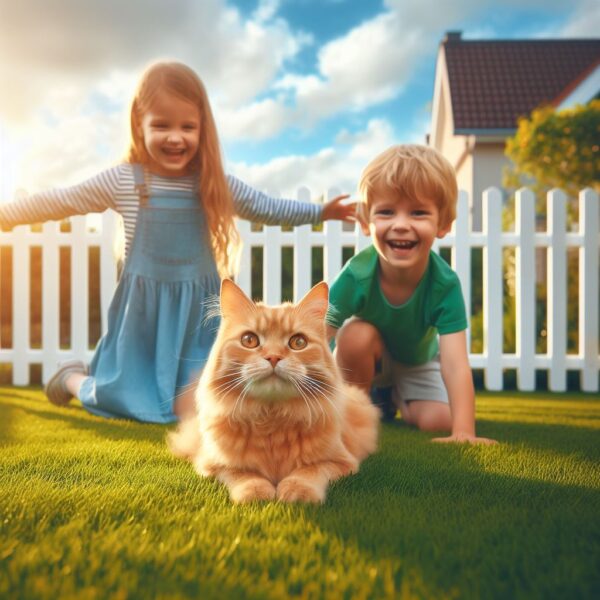

Adopting or Purchasing
If you’re set on getting a ginger cat, start by looking for trustworthy breeders or local shelters.
It’s important to choose breeders who are reputable.
They should prioritize the health and well-being of their cats.
Ask them questions.
Learn about their breeding practices and the care they provide.
Visiting local shelters is another great option.
Shelters have many cats, including ginger ones, needing homes.
By adopting from a shelter, you’re offering a cat a new start in life.
It’s a chance for them to enjoy the love and comfort of a forever home.
Remember, whether you buy or adopt, you’re committing to care for a life.
This decision comes with responsibility, but also lots of joy and companionship.
Make sure you’re ready for this wonderful journey with your new ginger cat.
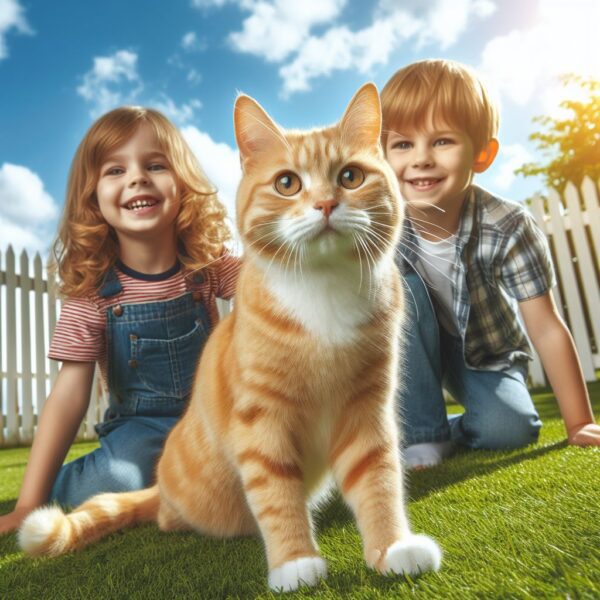

Ginger cat breeds offer a delightful blend of affection, playfulness, and adaptability, making them excellent pets for families.
By understanding their characteristics and care needs, you can ensure a happy and healthy life for your new feline friend and your family.
Remember, a pet is a long-term commitment.
Choosing the right breed for your family’s lifestyle is the first step in a journey filled with love and companionship.
| Breed | Characteristics | Temperament | Care Needs | Compatibility with Children | Other Aspects | Pros | Cons |
|---|---|---|---|---|---|---|---|
| American Shorthair
| Robust health, friendly demeanor, adaptable | Social, enjoys playtime, good with children | Low-maintenance, regular vet check-ups, balanced diet | Excellent, patient and tolerant | Good for first-time pet owners, adaptable to various environments | Adaptable to various environments, low-maintenance, good with children | Can be independent, may require time to warm up to new people |
| Abyssinian
| Playful, curious, affectionate, interactive | Highly energetic, loves exploration and play | Needs interactive play, regular grooming | Good, but better with older children who can participate in play | May need more attention and stimulation, ideal for active families | Highly interactive, playful, bonds well with family members | Requires ample playtime and attention, not ideal for very busy families |
| British Shorthair | Calm, easygoing, gentle | Relaxed, patient, not overly demanding | Regular health check-ups, occasional grooming | Very good, gentle and tolerant | Prefers a quiet and stable environment, suitable for less active households | Gentle with children, low-energy requirements, calm disposition | Can be aloof with strangers, prefers a stable and quiet environment |
| Maine Coon
| Large size, sociable, luxurious long fur | Affectionate, gentle, dog-like behavior | Regular grooming due to long fur, general health maintenance | Excellent, patient and playful | Adaptable, enjoys being part of family activities | Great with families, interactive, affectionate | Prone to genetic health issues, needs space |
| Munchkin
| Small size, short legs, outgoing | Playful, curious, kitten-like demeanor | Minimal grooming, requires regular playtime and exercise | Good, playful nature aligns well with active kids | Adapts well to indoor living, suitable for apartments | Engaging personality, good for small spaces, low grooming needs | Limited jumping ability, some health concerns due to build |
FAQs:
Q1: Are ginger cats good with children?
A1: Yes, many ginger cats, like the American Shorthair and British Shorthair, are known for their patient and gentle nature, making them excellent companions for children.
Q2: How much grooming do ginger cats require?
A2: Grooming needs vary by breed.
For instance, Abyssinians require regular grooming due to their playful nature and active lifestyle, while British Shorthairs have less demanding grooming needs.
Q3: Are ginger cats suitable for first-time pet owners?
A3: Absolutely! Breeds like the American Shorthair are adaptable and low-maintenance, making them a great choice for first-time pet owners.
Q4: Can ginger cats adapt to busy households?
A4: Yes, many ginger cat breeds are adaptable.
However, breeds like the Abyssinian might need more attention and stimulation, making them more suited for active families.
Q5: How active are ginger cat breeds?
A5: This varies. Abyssinians are highly energetic and enjoy exploration, while British Shorthairs are more relaxed and have lower energy requirements.
Q6: Do ginger cats have any specific health concerns?
A6: Generally, ginger cats are robust and healthy.
Regular vet check-ups are essential to maintain their health, as with any pet.
Q7: How do I choose the right ginger cat breed for my family?
A7: Consider your family’s lifestyle, the amount of time you can dedicate to pet care, and the energy level of the cat.
Researching and understanding each breed’s characteristics is key.
Q8: Are there any cons to having a ginger cat?
A8: While they are wonderful pets, some breeds may have specific needs.
For example, some may be independent and require time to warm up to new people, while others might prefer a stable and quiet environment.
Q9: Are ginger cats noisy or quiet?
A9: Ginger cats vary in vocalization.
Breeds like the Abyssinian are quite active and may be more vocal, while others like the British Shorthair are generally quieter.
Q10: Can ginger cats adapt to living in apartments?
A10: Many ginger cat breeds adapt well to apartment living.
However, they do need space for play and exercise, so interactive playtime is important.


